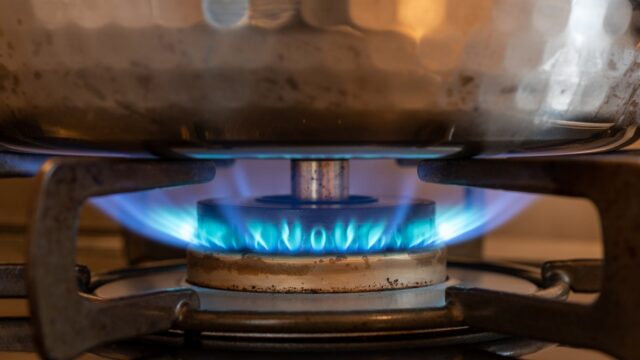Saving energy: Tips to make your cooking gas last longer
Cooking gas is a costly item that is required in many urban homes for cooking. Here are a few ways to ensure it's used efficiently and lasts long.

Does your cooking gas last as long as you wish it would? If it doesn’t, then there are a few tips you can use or a few adjustments you can make to your cooking style to make sure cooking gas lasts longer.
Cooking gas is among the costly items that households have to budget for almost every month. And even though it (cooking gas) is efficient and less harmful to the environment, rising fuel prices have made many households feel the pinch of refilling their gas cylinders. Currently, the cost of refilling a 3kg Total gas cylinder is KSh890, KSh1,540 for 6kg and KSh3,300 for 13kg. The prices also vary depending on the brand and where you buy it. For example, refilling a 13kg Afrigas cylinder costs KSh 2910, a 13kg K-gas is KSh2670 and a 13kg Progas is KSh3,000.
Nothing is as frustrating as having your cooking gas suddenly run out on you mid-month, when you are broke, and especially at night when all the suppliers have closed.
So, here are a few ways to save and make your cooking gas last longer.
- Refill at an authorised dealer
There are so many cooking gas suppliers in the market that you don’t have to refill at a petrol station only. However, make sure the supplier is a certified dealer to avoid buying contaminated gas which will go to waste. Also, ensure the cylinder has been refilled to the correct capacity to get your money’s worth, and so that it lasts longer.
2. Check pipes, regulators and burners
Ensure the gas pipes, regulators and burners are in good working condition. Also, check for gas leaks so that you don’t waste the cooking gas or cause accidents. Pay close attention to faint hissing sounds or strange smells which could indicate a leak. If you detect any leaks replace the faulty accessories immediately.
3. Defrost food
Defrost your meals the previous night or early in the morning before cooking. This will reduce the amount of gas used and time spent on cooking as you wait to bring the frozen food to room temperature.
4. Meal prep
Instead of cooking several times a day, consider meal prepping to save time and money spent on cooking gas for each meal. Cook several meals at a go, then freeze or refrigerate them and only reheat them when you need to eat.
5. Use alternative sources of energy
Cereals such as maize, beans or green grams take a long time to cook. Instead of using the gas stove, opt for an energy-saving jiko to boil foods that take hours to prepare. You can also choose to use the electric side of the gas stove, although that may mean paying more for your electricity bill.
6. Use a pressure cooker
Pressure cookers use high internal temperatures to cook food faster. Unlike regular cooking pots, they save you money and drastically reduce cooking time.
7. Assemble all the ingredients
Before you turn on your stove, assemble all the ingredients you will need. Make sure you have chopped, thawed, marinated, basted and seasoned all you will require before you start cooking; this way, you will not burn and waste cooking gas as you run around prepping different parts of the meal.
8. Use your cooker correctly
Use your gas stove correctly by ensuring that the pot or pan is covering the flames completely. Using a small pot on a big burner means that heat will escape. Also, if you see flames licking the sides of the pot it means the stove is turned on too high or you need to use the correct burner with the right cookware.
9. Don’t overcook meals
The longer your food stays on the stove the more gas you will use. Keep your eye on the food as it cooks and once done turn off the stove to avoid wastage.
10. Cover your pots
Cover food with a lid as it cooks. This way the steam helps to cook faster and more efficiently.
